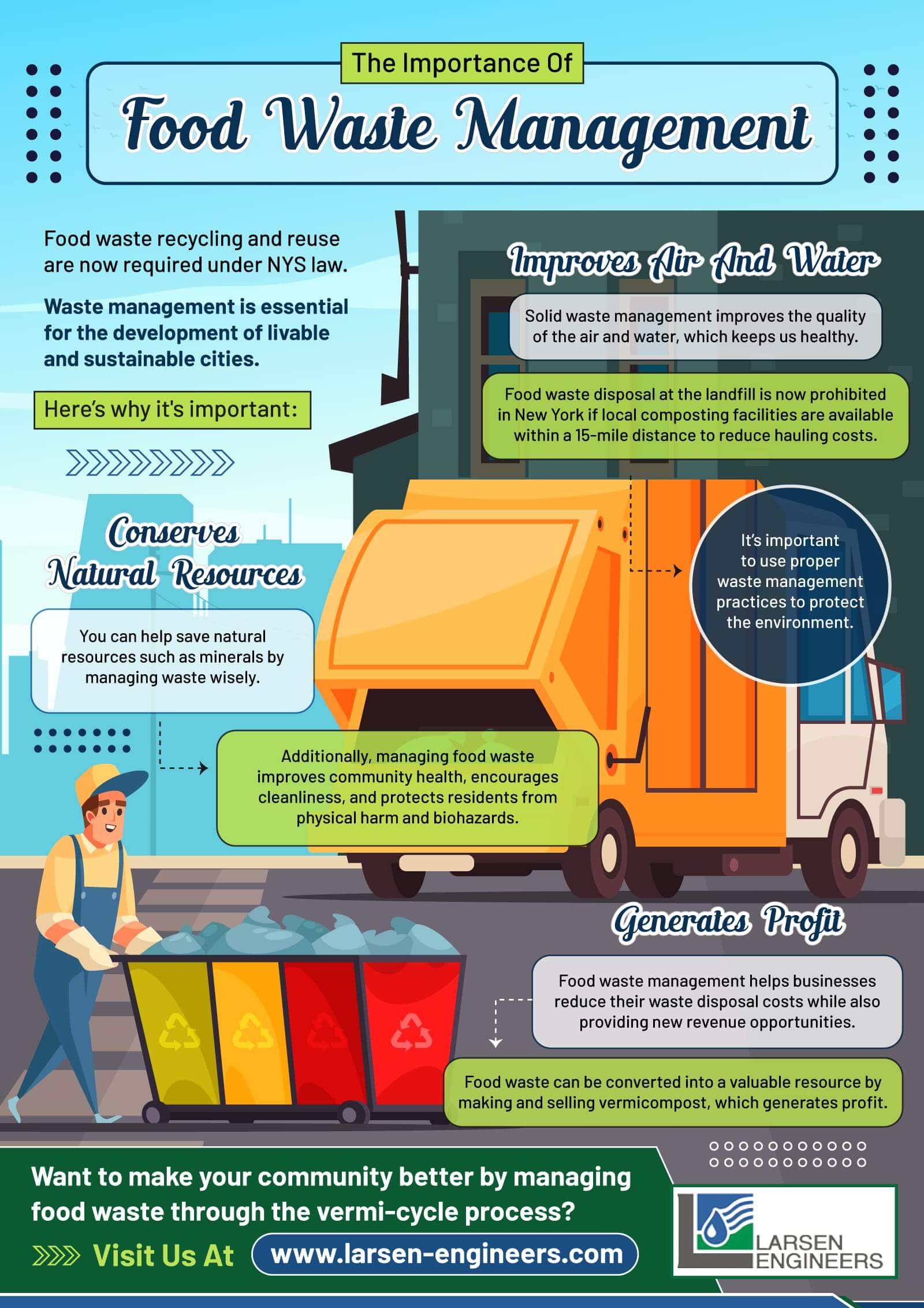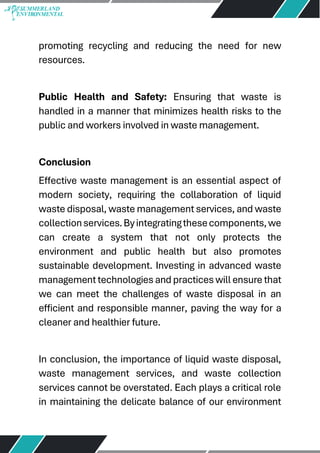Indicators on Reclaim Waste You Need To Know
Indicators on Reclaim Waste You Need To Know
Blog Article
The Reclaim Waste Diaries
Table of ContentsThe 8-Second Trick For Reclaim WasteThe Only Guide to Reclaim WasteReclaim Waste Fundamentals Explained10 Easy Facts About Reclaim Waste DescribedNot known Facts About Reclaim Waste
Check out the types, incidents, and types of fluid waste. Residential sewage waste describes the waste and products from a residential septic container. This sort of waste is developed by human beings in residences, schools, and other buildings. This only includes septic containers that have a drain field. The correct administration and disposal of domestic sewage waste need liquid waste to be moved to a sewage therapy plant where the appropriate techniques and equipment are related to purify and get rid of waste.
Industrial waste frequently includes possible risks, such as flammable products or a combination of fluid and strong waste items, and requires a much more sophisticated and detailed disposal process. The disposal of business waste commonly entails the filtering of waste before transport to guarantee safe and appropriate disposal. Hazardous waste is created from by-products and runoff of commercial processes and production.
This type of waste can not use the same sewage administration transportation or procedures as septic or commercial liquids. The hazardous waste management procedure calls for the inspection and screening of fluid waste prior to it undertakes the disposal process (liquid waste removal). Overflow waste is the fluid waste that originates from drainage and excess stormwater in very inhabited areas or cities
Drainage waste can trigger contamination and flooding if not dealt with appropriately. Discover more concerning drain cleansing and waste monitoring. Making sure correct waste administration can protect against catastrophes and decrease environmental injury. Both people in domestic settings and specialists in business or manufacturing industries can gain from recognizing the processes and regulations of fluid waste management.
About Reclaim Waste
Get in touch with PROS Solutions today to learn more about our waste management and disposal solutions and the appropriate methods to look after the fluid waste you produce.
(https://sitereport.netcraft.com/?url=https://reclaimwaste.com.au)Do you know what happens to your water when you pull the plug, flush the toilet or drain the washing machine? No? Well, it's worth understanding. This supposed 'wastewater' is not only a crucial source however, after treatment, will be released to our land, rivers or the ocean. Made use of water from toilets, showers, bathrooms, kitchen area sinks, laundries and industrial procedures is known as wastewater.

water used to cool down equipment or clean plant and equipment). Stormwater, a form of wastewater, is overflow that moves from farming and urban areas such as roof coverings, parks, yards, roads, courses and seamless gutters right into stormwater drains pipes, after rainfall. Stormwater flows without treatment straight to neighborhood creeks or rivers, eventually reaching the ocean.
10 Simple Techniques For Reclaim Waste
In Queensland, most wastewater is dealt with at sewer treatment plants. Wastewater is carried from domestic or industrial websites via a system of sewage systems and pump stations, called sewerage reticulation, to a sewage therapy plant. City governments construct, maintain and run most sewage treatment plants. Operators are accredited under the Environmental Security Act 1994 to discharge treated wastewater at an appropriate ecological standard right into rivers.
The Division of Natural Resources suggests city governments regarding handling, operating and keeping sewage systems and therapy plants. In unsewered locations, neighborhood governments might call for homeowners to set up private or household sewer therapy systems to deal with residential wastewater from commodes, kitchen areas, washrooms and washings. The Division of Natural Resources authorizes using house systems when they are proven to be reliable.
Many stormwater obtains no treatment. In some brand-new neighborhoods, treatment of hop over to here some stormwater to get rid of clutter, sand and gravel has started utilizing gross toxin catches. Wastewater treatment occurs in 4 stages: Gets rid of solid issue. Larger solids, such as plastics and other objects incorrectly released to sewage systems, are eliminated when wastewater is gone through screens.
Wastewater then moves right into large storage tanks where solids clear up and are gotten rid of as sludge. Oil and scum are skimmed from the surface area. Uses tiny living organisms called micro-organisms to break down and remove staying liquified wastes and great fragments. Micro-organisms and wastes are included in the sludge. Gets rid of nitrogen and phosphorus nutrients that can create algal blossoms in our rivers and intimidate aquatic life.
The Main Principles Of Reclaim Waste
Nutrient elimination is not readily available at all sewer treatment plants because it calls for costly specialized equipment. It is ending up being more typical in Queensland. Clear liquid effluent created after treatment might still have disease-causing micro-organisms. If this effluent is launched right into waterways such as rivers or the sea, the micro-organisms will eventually die out.

This usually means wastewater needs to be dealt with or pollutants removed prior to it can be discharged to waterways. The majority of wastewater moves into the sewerage system. Under the Act, city governments carry out authorizations and licences for eco pertinent activities (Periods) including wastewater releases that could have a regional influence. The department provides authorizations and licences to Periods entailing wastewater releases that could have a regional or statewide influence.
All About Reclaim Waste
Or else, samples are taken for lab evaluation. Commonly many tests are needed to develop the degrees of each of the various toxins such as oils, heavy metals and pesticides in water. Monitoring supplies valid details about water top quality and can confirm that licence conditions are being fulfilled. The information acquired with surveillance supplies the basis for making water quality choices.
Report this page